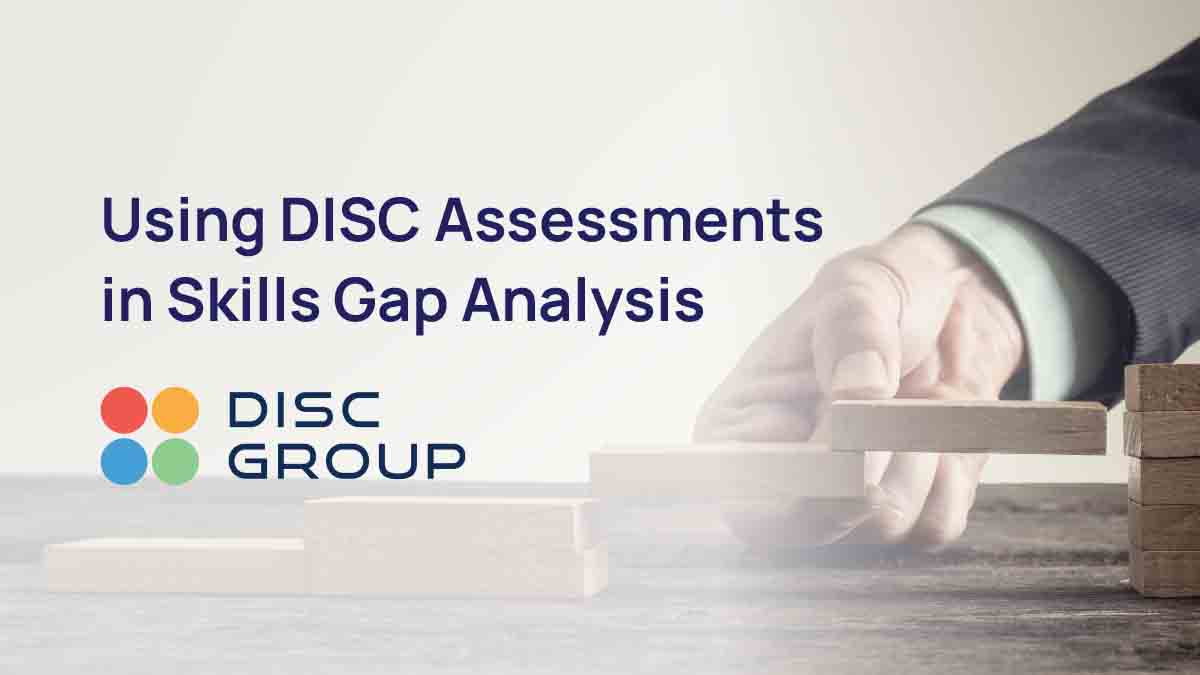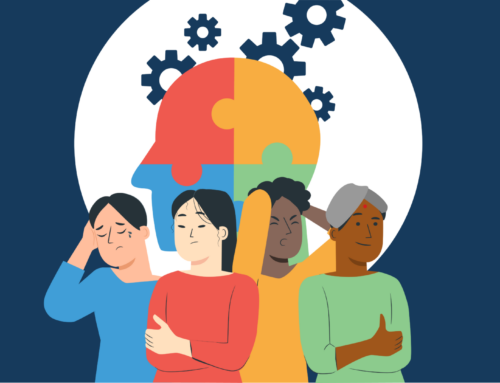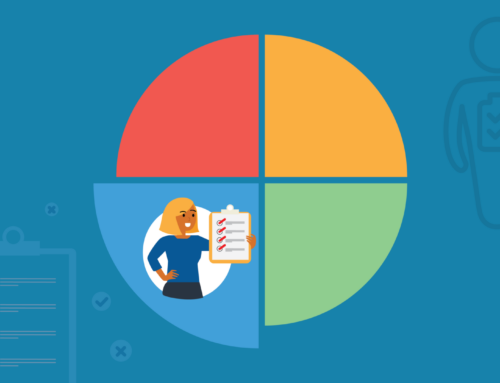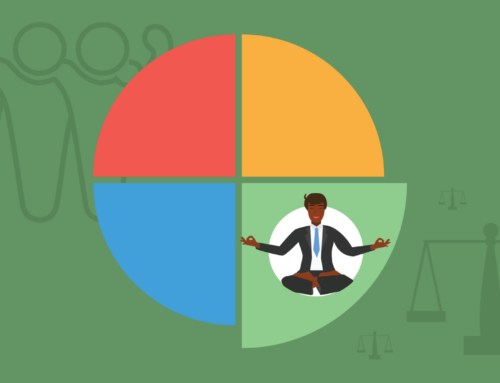Regular performance reviews are an important part of ensuring your team members are working together productively. However, it’s hard to get performance reviews right. According to Gallup, only 14% of employees strongly agree that their performance reviews inspire them to improve. That’s a pretty disappointing statistic.
So, how can we ensure that we are conducting performance reviews effectively in a way that motivates and inspires employees? One sure-fire way is to use a skills gap analysis to evaluate your team’s performance.
But what exactly is a skills gap analysis, and how can DISC assessments be used to enhance them?
What is a Skills Gap Analysis?
A skills gap analysis, simply put, is a way in which employers measure the gap between skills needed by the company and skills their employees currently have.
If you think that skills gaps exist in your current team, don’t panic! In 2021, 87% of companies said they have skills gaps, and it’s perfectly normal for them to emerge – especially in fast-growing industries.
Usually conducted by an organisation’s HR department, individual employees’ current skill levels and knowledge gaps are measured against the company’s progression towards their overall business goals. Depending on the assessment results, the company can then adopt strategies to upskill their employees depending on what skills gaps need to be filled to meet their business targets.
Benefits of a Skills Gap Analysis
Skills gap analyses are widely recognised for being highly productive and leading to an overall improvement of your team. Some of their benefits include:
Better understanding of your workforce
Through conducting a skills gap analysis, employers or HR executives can gain deeper insight into how employees are performing and the skills gaps present that are preventing them from meeting any targets. With this knowledge, managers can then be able to develop stronger strategies for your company’s development programmes to effectively increase employees’ competency and skill levels.
Enhanced recruitment strategies
With a skills gap analysis, managers are able to identify which gaps need to be filled in order for your company to meet its desired targets. Once they have been identified, hiring managers can use this knowledge in their recruitment processes to narrow down the applicants to those with the specific skills needed to bridge these skills gaps. This strategy will not only streamline recruitment processes but also ensure that the hires being made are accurate and long-term.
Stronger development & retention programme
Employees have always been expected to learn on the job and keep themselves updated on how their industry is moving. Today, it’s more important than ever before – the World Economic Forum has said that by 2022 no less than 54% of all workers will need to update or replace their competencies. By identifying your team’s skills gaps early on, you’ll be gaining an edge on your competitors and upskilling your employees according to the changes in your industry. This strategy is also more cost-efficient as you’ll be training your existing employees rather than spending money on a constant recruitment cycle.
What is a DISC Assessment?
One of the best methods employers can use to conduct skills gap analyses is a DISC assessment, but to fully reap the most benefits you have to understand what a DISC Assessment is and how the DISC model works.
DISC Assessments are a tool used to assess an individual’s personality, particularly the aspects which come into play in the workplace. They are able to analyse leadership qualities, behavioural patterns, and can help to improve cohesiveness and communication amongst team members.
The DISC framework categorises individuals and their traits into four behavioural styles:
Dominance (D-Style)
Individuals with Dominance traits are very results-focused and will overcome any resistance and shape their environment in order to achieve their objectives. They are typically independent, confident, and strong-willed but this can sometimes manifest as impatience and stubbornness.
Influence (I-Style)
Individuals with Influence traits are charming and charismatic, and use this to influence their environment. They can be optimistic, sociable, enthusiastic, and great at communication but this can sometimes mean they have trouble working individually and can lack focus and organisation skills.
Steadiness (S-Style)
Individuals with a Steadiness behavioural style are often accepting of their environment and stable in how they relate and respond to situations. They can be patient, calm, accommodating, and dependable people who work well in a team. However, they can sometimes appear as lacking assertiveness.
Compliance (C-Style)
Individuals with a Compliance style are able to adjust to any superior forces present in their environment. They are analytical, systematic, and expectation-oriented but they can also be overly perfectionistic and lack decision-making skills.
After taking the assessment, you will receive unique DISC profiles for both your individual team members and for your team as a whole (depending on what type of DISC Assessment you’ve decided to use). With these profiles you’ll be able to gain insight on an individual’s current skill set and behavioural traits but view an in-depth analysis of how these different traits are affecting your workforce, both negatively and positively.
How can I use DISC Assessments for Skills Gap Analysis?
Through conducting a skills gap analysis with DISC assessments, you’ll be able to gain more nuanced insights into your employees and how they work. The DISC framework differs from other employment analysis strategies as it doesn’t merely look at your employees’ technical skills but holistically evaluates their personalities.
More thorough insights
While a skills gap analysis is useful for identifying any missing hard skills within your team, a DISC personality assessment focuses more on an individual’s soft skills and behavioural patterns. These aspects of an individual’s personality are just as important as hard skills are they are essential to a team’s cohesiveness and compatibility, which has a significant effect on a company’s productivity. By incorporating the DISC framework into your skills gap analysis you end up creating a more complete profile of your workforce.
Employee self-awareness
Using DISC assessments will also help your employees gain a stronger sense of self-awareness about their behaviour in the workplace. A more technical skills gap analysis is great at identifying skills that can be learnt or obtained through relatively straightforward means such as workshops and training programmes, but DISC profiles and assessments will identify traits that are more abstract, such as reliability, communication skills, independence, confidence, and more. With the DISC model, employees will become aware of gaps that can’t be measured and fixed with a simple to-do list, but through constantly being mindful and aware of their workplace behaviour.
More effective training & development
A DISC personality assessment can also help with the development of any training plans your company wants to implement to bridge skills gaps. Training and upskilling your employees is a great strategy for any company that wants to increase productivity, and research shows that companies with a comprehensive development plan have 218% higher income than companies with no formal training plan.
Each person has their own way of learning and responds differently to certain mediums of information. With a DISC assessment, you’ll be able to see how your employees learn best and plan your development strategies according to their DISC profiles and reports, thereby creating the most effective training plans.
Conclusion
If you are identifying the skills gaps that exist in your organisation, it goes without saying that it is worth considering the behavioural gaps that exist also. At the DISC Group, we provide a wide range of assessments that harness both the power of DISC and emotional intelligence insights, including DISC trainer certification courses, individual profiles, and assessments that measure the strengths and limitations of your team as a whole.
If you’re interested in how our DISC assessments can help you understand more about your workforce, book a free consultation with us and we’ll help you find the best solutions for your organisation. To find out more about how DISC can help you to establish a more cognitively diverse workforce, get in touch today.





